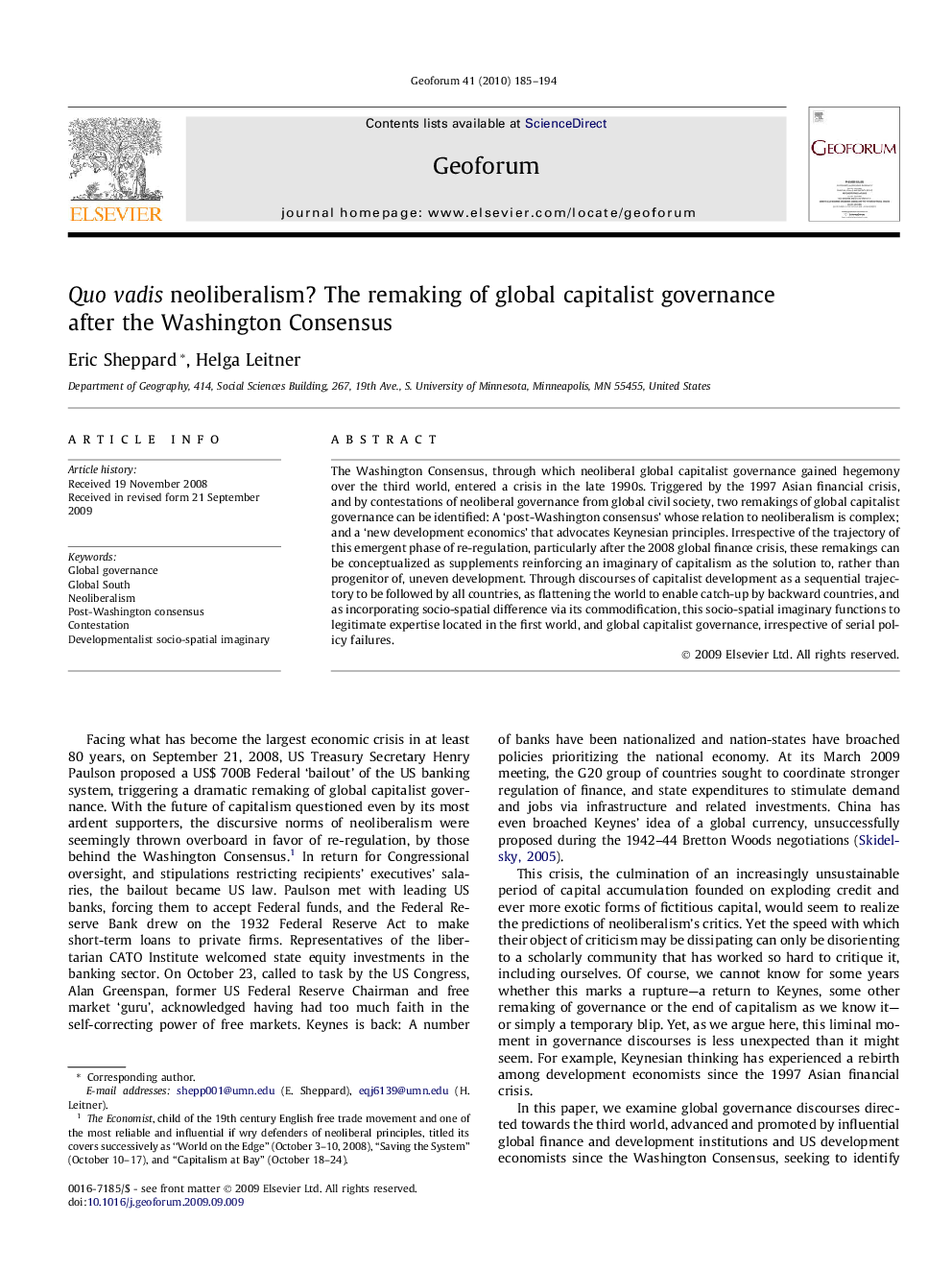| Article ID | Journal | Published Year | Pages | File Type |
|---|---|---|---|---|
| 5074683 | Geoforum | 2010 | 10 Pages |
Abstract
The Washington Consensus, through which neoliberal global capitalist governance gained hegemony over the third world, entered a crisis in the late 1990s. Triggered by the 1997 Asian financial crisis, and by contestations of neoliberal governance from global civil society, two remakings of global capitalist governance can be identified: A 'post-Washington consensus' whose relation to neoliberalism is complex; and a 'new development economics' that advocates Keynesian principles. Irrespective of the trajectory of this emergent phase of re-regulation, particularly after the 2008 global finance crisis, these remakings can be conceptualized as supplements reinforcing an imaginary of capitalism as the solution to, rather than progenitor of, uneven development. Through discourses of capitalist development as a sequential trajectory to be followed by all countries, as flattening the world to enable catch-up by backward countries, and as incorporating socio-spatial difference via its commodification, this socio-spatial imaginary functions to legitimate expertise located in the first world, and global capitalist governance, irrespective of serial policy failures.
Related Topics
Social Sciences and Humanities
Economics, Econometrics and Finance
Economics and Econometrics
Authors
Eric Sheppard, Helga Leitner,
